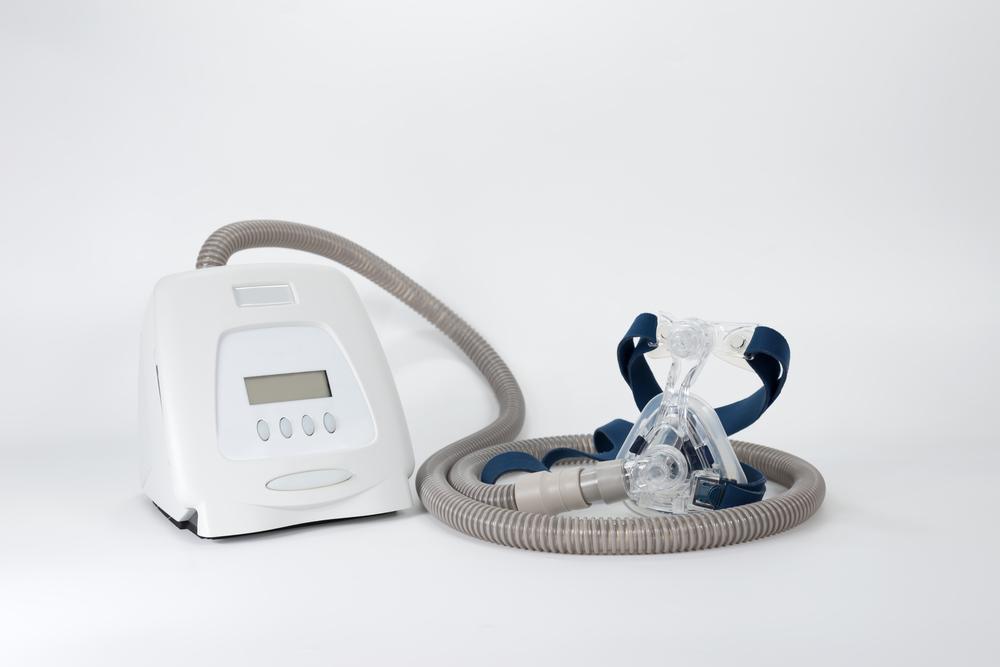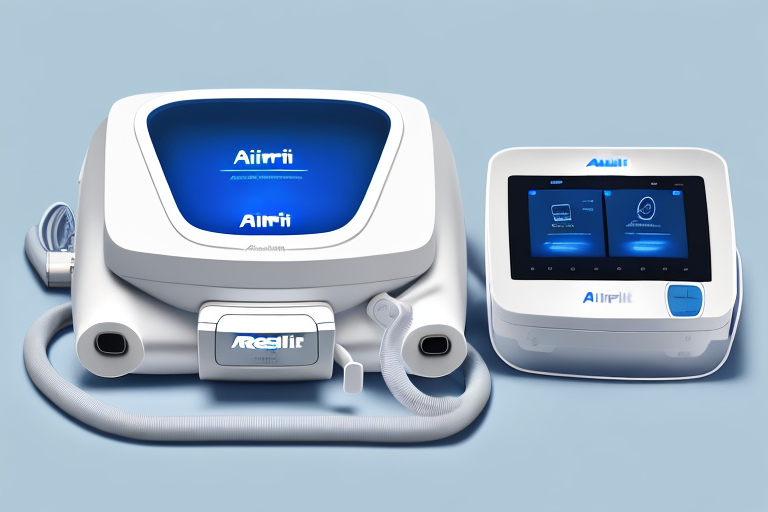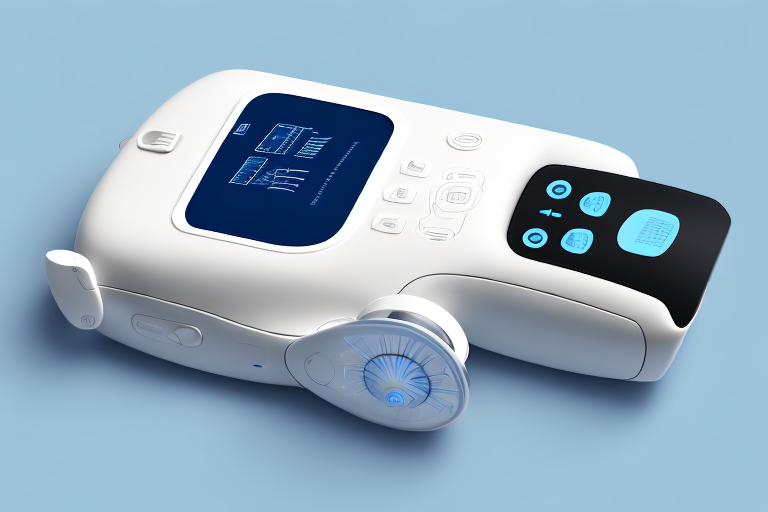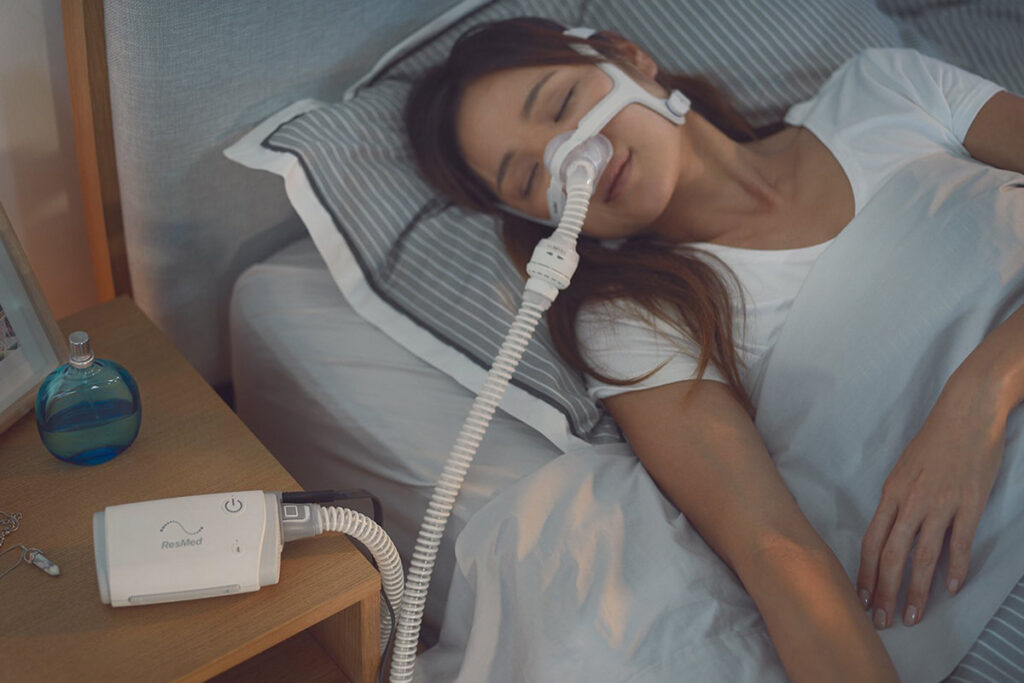Sleep apnea is a sleep disorder that affects millions of people worldwide. Despite its prevalence, many remain unaware of its impact on their health and quality of life. Fortunately, with advancements in medical technology, sleep apnea machines have emerged as a crucial tool in managing this condition and transforming lives in the process.
Understanding Sleep Apnea: A Silent Nighttime Threat
Sleep apnea is a condition characterized by interrupted breathing during sleep, leading to frequent awakenings and disturbances in sleep patterns. Often, individuals with sleep apnea are oblivious to their condition, as it commonly goes undiagnosed. However, the consequences of untreated sleep apnea can be severe, affecting both physical and mental well-being.
When it comes to sleep apnea, understanding the science behind this condition is crucial. Sleep apnea occurs when the airway becomes partially or completely blocked, causing breathing interruptions. This blockage can be due to different factors, such as excessive weight, genetic predisposition, or structural abnormalities in the airway. The repeated pauses in breathing throughout the night disrupt the normal sleep cycle, preventing the individual from achieving restorative and uninterrupted rest.
Identifying the symptoms of sleep apnea is essential for early detection and intervention. Some common indicators include loud snoring, daytime sleepiness, morning headaches, difficulty concentrating, and frequent disturbances in sleep. It is important to note that these symptoms may vary from person to person, and not everyone with sleep apnea experiences all of them.
Left untreated, sleep apnea can lead to serious health risks. The constant interruptions in breathing can put a strain on the cardiovascular system, increasing the risk of heart disease, stroke, and irregular heart rhythms. Additionally, sleep apnea has been linked to high blood pressure, as the body’s oxygen levels fluctuate during the night. Over time, this can contribute to the development of hypertension. Furthermore, untreated sleep apnea is associated with an increased likelihood of developing type 2 diabetes, as it can affect the body’s ability to regulate blood sugar levels.

It is important to seek medical attention if you suspect you may have sleep apnea. A healthcare professional can conduct a sleep study to diagnose the condition and recommend appropriate treatment options. Treatment for sleep apnea may include lifestyle changes, such as weight loss and exercise, as well as the use of continuous positive airway pressure (CPAP) devices or oral appliances to help keep the airway open during sleep.
In conclusion, sleep apnea is a silent nighttime threat that can have significant impacts on an individual’s overall health and well-being. By understanding the science behind sleep apnea, recognizing the common symptoms, and seeking timely medical intervention, individuals can take steps towards managing this condition and improving their quality of sleep and life.
The Role of Sleep Apnea Machines in Treatment
Sleep apnea is a serious condition that affects millions of people worldwide. It is characterized by pauses in breathing or shallow breaths during sleep, which can lead to a variety of health problems if left untreated. Fortunately, sleep apnea machines offer a ray of hope for those affected by this condition.
Sleep apnea machines, also known as Continuous Positive Airway Pressure (CPAP) machines, have revolutionized the treatment of sleep apnea. These machines work by delivering a constant flow of air into the airway, preventing blockages and allowing for uninterrupted breathing during sleep.
One of the key advantages of sleep apnea machines is their ability to provide customized treatment. CPAP machines consist of a mask that covers the nose and sometimes the mouth, connected to a machine that generates pressurized air. The air pressure is adjusted to meet the specific needs of the individual, ensuring that the airway remains open throughout the night.
Different Types of Sleep Apnea Machines
When it comes to sleep apnea machines, there is no one-size-fits-all solution. These machines come in various types, each tailored to suit different needs and preferences.
For individuals who struggle with dryness and discomfort while using the device, there are models that have built-in humidifiers. These humidifiers add moisture to the air, reducing the dryness often associated with using the machine.
On the other hand, some individuals may require a more portable solution. For frequent travelers or those constantly on the move, there are sleep apnea machines that are compact and convenient to carry around. These portable machines allow individuals to continue their treatment regimen even when they are away from home.
How Sleep Apnea Machines Work
Understanding how sleep apnea machines work is essential in appreciating their effectiveness in treating the condition. As mentioned earlier, CPAP machines deliver a constant flow of pressurized air into the airway.
When an individual with sleep apnea wears the mask connected to the machine, the pressurized air acts as a splint, keeping the airway open and preventing it from collapsing. This constant flow of air eliminates breathing obstructions, allowing for restful and uninterrupted sleep.
Additionally, sleep apnea machines can also help improve the quality of sleep. By ensuring that the airway remains open throughout the night, these machines prevent the frequent awakenings and disruptions that are common among individuals with sleep apnea. As a result, individuals using sleep apnea machines often experience improved daytime alertness, reduced daytime fatigue, and an overall improvement in their quality of life.
In conclusion, sleep apnea machines play a crucial role in the treatment of sleep apnea. They offer a non-invasive and effective solution for individuals struggling with this condition, allowing them to breathe freely and enjoy restful sleep. Whether it’s a model with a built-in humidifier or a portable machine for those on the go, sleep apnea machines provide personalized treatment options that can significantly improve the well-being of individuals with sleep apnea.

The Life-Changing Benefits of Sleep Apnea Machines
Using sleep apnea machines can have a profound positive impact on the lives of those affected by this condition. Sleep apnea is a sleep disorder characterized by pauses in breathing or shallow breaths during sleep. It can lead to daytime sleepiness, fatigue, and other health problems. Sleep apnea machines, also known as continuous positive airway pressure (CPAP) machines, are designed to treat this condition by delivering a steady flow of air pressure to keep the airway open.
Improved Sleep Quality and Energy Levels
One of the most noticeable benefits of using a sleep apnea machine is the improvement in sleep quality. By maintaining an open airway and allowing for continuous breathing, individuals experience more restful sleep and wake up feeling refreshed and energized. The restoration of a healthy sleep pattern can lead to increased productivity, improved focus, and enhanced overall well-being.
Imagine waking up in the morning feeling well-rested and ready to take on the day. With a sleep apnea machine, this becomes a reality for many people who previously struggled with interrupted sleep due to their condition. The continuous flow of air provided by the machine ensures that the airway remains unobstructed, preventing breathing pauses and allowing for a deep and uninterrupted sleep.
Not only does improved sleep quality result in increased energy levels, but it also has a positive impact on mental health. Sleep deprivation and poor sleep quality have been linked to mood disorders such as depression and anxiety. By addressing the underlying cause of sleep disturbances, sleep apnea machines can help alleviate these symptoms and improve overall emotional well-being.
Reduced Health Risks and Long-Term Complications
The use of sleep apnea machines is also associated with a reduction in health risks and long-term complications. Sleep apnea has been linked to a range of serious health conditions, including hypertension, heart disease, stroke, and diabetes. By ensuring consistent oxygen supply and preventing breathing interruptions, these machines help mitigate the cardiovascular risks often associated with untreated sleep apnea.
High blood pressure, a common comorbidity of sleep apnea, can be effectively managed with the use of a sleep apnea machine. Studies have shown that CPAP therapy can lead to a significant decrease in blood pressure levels, reducing the risk of heart disease and other cardiovascular complications. Additionally, improved glycemic control has been observed in individuals with diabetes who undergo CPAP therapy, highlighting the potential benefits of sleep apnea machines in managing this chronic condition.
Furthermore, sleep apnea has been associated with an increased risk of stroke. By maintaining a continuous flow of air and preventing breathing pauses, sleep apnea machines can help reduce this risk and promote better overall cardiovascular health.
Overall, the life-changing benefits of sleep apnea machines cannot be overstated. From improved sleep quality and energy levels to reduced health risks and long-term complications, these devices offer a lifeline to individuals affected by sleep apnea. If you or someone you know is struggling with this condition, consider exploring the option of using a sleep apnea machine and experience the transformative effects it can have on your life.

Overcoming Challenges: Adapting to a Sleep Apnea Machine
While sleep apnea machines offer tremendous benefits, adapting to the treatment can present challenges for some individuals.
Tips for Comfort and Ease of Use
Ensuring comfort and ease of use is essential for long-term adherence to CPAP therapy. Selecting the right mask size and style, experimenting with different cushioning options, and making adjustments to the air pressure settings can significantly enhance comfort levels. Additionally, establishing a consistent bedtime routine and keeping the machine clean and well-maintained are crucial for maximizing the effectiveness of the treatment.
Dealing with Common Concerns and Misconceptions
It is not uncommon for individuals to have concerns or misconceptions about using sleep apnea machines. Addressing these concerns with healthcare professionals, joining support groups, and focusing on the potential benefits can help alleviate anxieties. Understanding that the treatment is a vital step towards improving overall health and quality of life can make the adjustment process easier.
The Future of Sleep Apnea Treatment
The field of sleep apnea treatment continues to evolve, offering hope for even more effective and innovative solutions in the future.
Advances in Sleep Apnea Machine Technology
Continuous research and development have led to advancements in sleep apnea machine technology. Newer models are equipped with features such as automatic pressure adjustment, noise reduction, and wireless connectivity for data monitoring and analysis. These advancements aim to enhance user experience and compliance with the treatment.
The Role of Lifestyle Changes in Managing Sleep Apnea
While sleep apnea machines play a critical role in managing the condition, lifestyle changes can also have a significant impact. Maintaining a healthy weight, regular exercise, avoiding alcohol and sedatives, and practicing good sleep hygiene are all important factors in managing sleep apnea and optimizing the benefits of CPAP therapy.
In conclusion, sleep apnea machines have revolutionized the treatment of this sleep disorder, offering life-changing benefits for those affected. By understanding sleep apnea, recognizing its symptoms, and embracing the use of CPAP therapy, individuals can improve their sleep quality, reduce health risks, and achieve a better quality of life. With continuous advancements and a holistic approach to treatment, the future looks promising for those struggling with sleep apnea.

